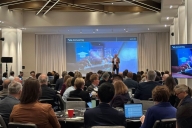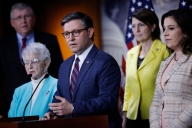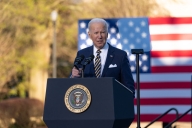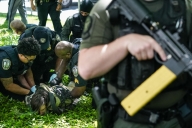You have /5 articles left.
Sign up for a free account or log in.
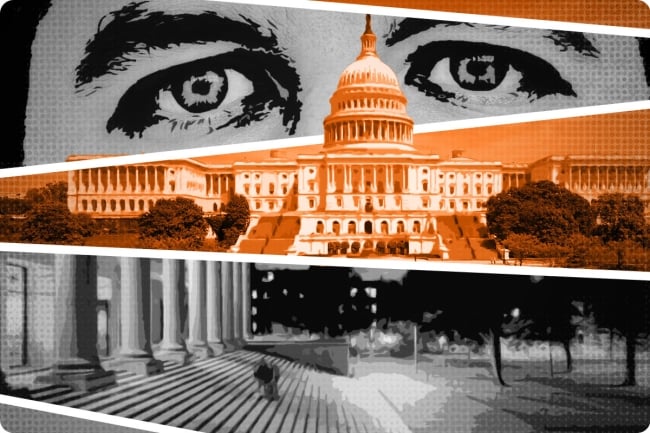
A congressional committee is gearing up to investigate antisemitism on college campuses; diversity, equity and inclusion policies; and the general focus of higher education. Experts say the investigations are an overstep of Congress’s role in higher education policy and could curtail the independence of colleges and universities.
When a congressional committee announced late last month that it wanted documents and emails that would reveal how Harvard University responded to accusations of plagiarism by its then president Claudine Gay, the demand set off alarms in higher education circles.
“The idea that the House of Representatives has the legal or moral authority to investigate the internal proceedings of a private university is outrageous,” said Ethan Ris, associate professor of higher education administration at the University of Nevada at Reno.
In the same month, Republicans on the House Education and Workforce Committee launched investigations into antisemitism at Harvard, the University of Pennsylvania and the Massachusetts Institute of Technology—inquiries that could grow in number and scope to include every aspect of an institution. Essentially, House Republicans have declared everything that happens on campuses fair game for oversight, as evidenced by the plagiarism review.
That declaration worries experts who fear the investigations could undermine the system of higher education, infringe on the independence of colleges and universities and threaten their federal funding. The committee’s work represents a significant shift in how Congress deals with institutions, they say, and is part of a broader attack on higher education—though committee leaders say it’s not a radical departure.
“It’s a function of the times and it’s the culture wars playing out on campus,” said Terry Hartle, a senior fellow at the American Council on Education who spent years as the chief lobbyist for higher education. “I’d never thought I’d see the day when plagiarism would become weaponized.”
It’s unclear where the investigations will lead and what the potential consequences will be. However, Republicans in both the House and Senate are increasingly threatening to punish colleges financially, either by restricting their access to federal financial aid or taxing their endowments. The House Ways and Means Committee announced a probe Wednesday examining whether Harvard, Penn, MIT and Cornell should retain their tax-exempt status, saying that a lack of support for Jewish students and the embrace of “DEI bureaucracies” call into question whether the universities are fulfilling their educational purposes. (Note: This paragraph has been updated to include the Ways and Means Committee’s investigation.)
The Education Department has already opened dozens of investigations into complaints of antisemitism, which is the typical way the federal government enforces federal civil rights laws. And that’s the way the federal government should hold colleges accountable, said Ris.
There’s little precedent for Congress getting involved in the inner workings of a private university, he said. “The only comparison—and we’re not there yet—is to the McCarthy era in terms of federal and congressional scrutiny of what’s in the hearts and minds of students and employees of universities,” he said.
Representative Virginia Foxx, the North Carolina Republican who chairs the House education committee, said the increased oversight is long overdue. It also reflects, in her view, the gravity of the situation—one in which college campuses have seen a rise in antisemitic incidents following the start of the Israel-Hamas war.
“We think any institution allowing or embracing hostility against Jewish students demands scrutiny,” Foxx said in an interview this week. “We will keep following things, but this is certainly not unique in terms of what Congress does.”
Historians disagree, saying the new level of scrutiny from Congress has no direct historical parallel when it comes to higher education. Some said it bears some semblance to the federal investigations into campus unrest in the 1960s and the search for communist faculty members during the McCarthy era of the 1950s, among other moments of intense public criticism for America’s colleges and universities.
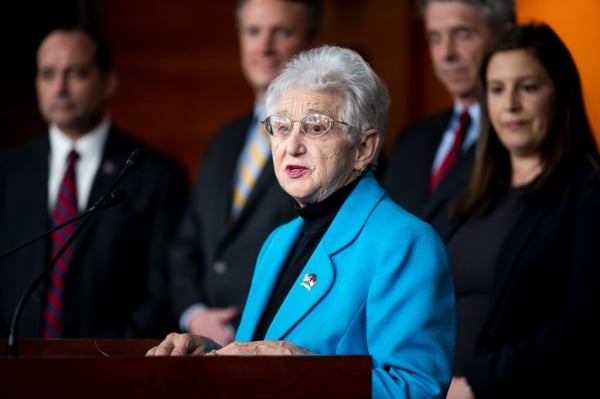
Bill Clark/CQ-Roll Call Inc./Getty Images
Typically when Congress does take a closer look at higher education, inquiries are more focused on broader issues and policy questions—not what happened at a particular institution or the actions of its leader.
Last year, for instance, the House education committee and its higher education subcommittee held a number of hearings about free speech issues on campus, student loan policies, the influence of foreign funding and campus antisemitism, among other topics. Committee leaders also weighed in on a free speech controversy at Stanford University and sought details from the Education Department about its oversight of Penn when classified documents were found at the Penn Biden Center.
But only one hearing in 2023 featured three college presidents who were called to account for their actions. And prior that hearing, the committee had not publicly announced formal reviews of individual colleges or universities.
Experts see the new focus on senior administrators, and the way lawmakers called for and then cheered the resignations of Gay and Penn president Liz Magill, as a perilous form of political bullying.
“This moment is truly a watershed moment, as Congress has successfully asserted the power to oust senior leaders at any institution and force governance reform,” said Peter Lake, a law professor at Stetson University and expert in higher education. “The success of this political maneuver may embolden Congress to continue down this path; state legislatures may follow. This feels like the beginning of something, not the end.”
The Investigations
After Foxx brought the presidents of Harvard, Penn and MIT before her committee last month to answer for their responses to antisemitic incidents on their campuses, she quickly signaled that the hearing was just the start of her panel’s new oversight push.
Two days after the Dec. 5 hearing, she announced a formal investigation into the “learning environments” of the universities and warned that others would follow. Foxx told Inside Higher Ed this week that Columbia and Cornell Universities are also under investigation and that the committee will be “looking at lots of different schools.”
She told a group of reporters last week that the probe will include how “they are handling antisemitism, DEI and where is their focus these days,” Politico reported.
The committee has cited the House rules for the current Congress as its authority for these investigations. Those rules give the committee legislative and oversight jurisdiction over “education or labor generally” as well as over “basic laws, programs, and government activities relating to domestic educational programs and institutions.” And the committee is taking advantage of that broad authority.
One of its investigations kicked off this week with a letter to Harvard seeking a tranche of documents, including internal emails, about how the university responded to antisemitic incidents on its campus over the last few months. The committee had already requested numerous documents from Harvard about how university leaders investigated the plagiarism allegations against Gay and about disciplinary actions taken against faculty and students for violations of academic integrity, among other requests. Foxx said the records will inform the next steps of the investigations.
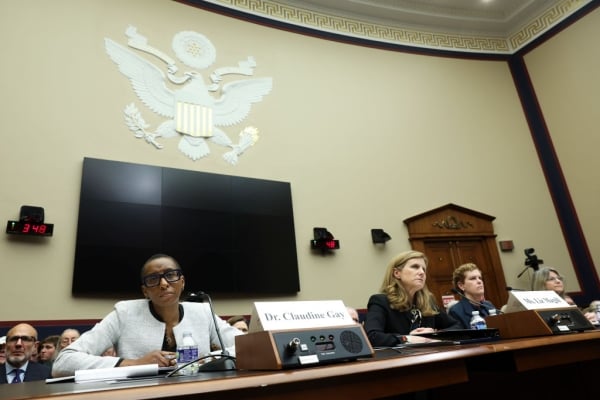
Kevin Dietsch/Getty Images
Foxx said the letters and document requests are in line with the committee’s other oversight work and focused on ensuring student safety and accountability—not scoring political points.
“These institutions take a lot of taxpayer money,” she said. “It is their responsibility to be accountable for that money. If they don’t want to be subjected to the oversight of Congress, which represents the American people, then don’t take the money of the American people.”
Tyler Coward, lead counsel at the Foundation for Individual Rights and Expression, which defends free speech on college campuses, said that while Congress has broad oversight authority, lawmakers need to be careful in the antisemitism investigations.
“There are legitimate reasons to investigate institutions if there’s actual evidence of conduct by institutions that violates federal antidiscrimination law,” he said. “But the suggestion that merely allowing constitutionally protected expression to occur on campus is a violation of or could violate federal law is incorrect.”
Coward said there have been instances of double standards at universities in terms of how speakers with unpopular views are treated, but the answer to that problem is not to call for more censorship.
“It’s to hold them in the future to these newfound free speech promises,” he said. “The sad result of the hearing is that many universities have pledged to revise their campus speech policies to allow more censorship of a protected expression.”
Congressional Overreach or Overdue Oversight?
Ris, the Reno professor, said universities shouldn’t comply with congressional investigations unless they are subpoenaed. If they do comply willingly, he worries that their acquiescence could set a precedent for future probes of colleges and universities.
“They have everything to lose by feeding into this narrative that they are somehow subject to this type of oversight, which they are not,” he said. “They have everything to gain by saying, ‘No, we’re independent. We make our own decisions. And frankly, we’re capable of enforcing our own standards.’”
Harvard officials have said they would comply with the investigation. A spokesman declined to comment further on the inquiry Wednesday.
“I’m dismayed by how both institutions and the media and individuals have not expressed more alarm over what’s coming out of the House education committee,” Ris said.
Under federal higher education law, the government is barred from exercising “any direction, supervision or control” of the curriculum, instruction, administration or personnel of an institution. However, the Education Department does determine whether institutions are eligible for federal funding, and there are a number of ways colleges can lose access to those funds. Those include violating federal civil rights law and losing accreditation, but the department has rarely pulled federal funding from institutions.
“It doesn’t get any clearer than that,” Ris said of federal law. “The federal government does not have a role in supervising or investigating institutions. If anybody’s going to do that, it’s the Department of Education, and that’s only in respect to its eligibility for federal funding.”
But some conservatives who have long criticized higher education are pleased to see Congress getting more involved. Ilya Shapiro, a senior fellow and director of constitutional studies at the Manhattan Institute, a conservative think tank, said in a statement to Inside Higher Ed that if Congress becomes more active in its oversight role, “that’s all to the good.”
“Federal higher-ed funds come with plenty of strings attached, ranging from accounting standards to anti-discrimination rules,” he said. “For too long, university officials have seen themselves as unaccountable to anyone outside a small echo chamber. The aftermath of Oct. 7 has burst that bubble, which should benefit all stakeholders and the American public.”
‘Frightening Tapestry’
Dominique Baker, an associate professor of education and public policy at the University of Delaware, is among those who see the investigations and hearings as part of a broader attack on higher education that stems in part from colleges and universities diversifying their student bodies and faculties.
“What we’re talking about right now is completely wrapped up in the notions of whether or not colleges and universities in the United States are for white men,” she said.
Baker said the Dec. 5 hearing and subsequent congressional scrutiny are related to higher ed issues playing out at the state level, such as deep program cuts at institutions like West Virginia University and the withholding of funds for the Universities of Wisconsin by state lawmakers because of the system’s diversity, equity and inclusion policies. They are “all pieces that work together in a frightening tapestry that show a distinct willingness to attack colleges and universities,” she said.
Baker acknowledged that Congress can ask colleges whatever it wants at any time. There are valid reasons for the federal government to play a role in higher education policy and in overseeing institutions, especially in addressing the real problems facing the system, she said. But “a witch hunt is not one to me,” she added.
Holden Thorp, editor in chief of Science magazine and former chancellor at the University of North Carolina at Chapel Hill, said the last six weeks have been the most tumultuous time for higher education in his career. Although the requests for documents and records carry some risk for institutions, he said the most dangerous thing would be another hearing.
“Nothing can damage an institution like those video clips being circulated widely that are taken out of context and wiped down to the most incriminating thing they could get,” he said.
But the attention and energy could be difficult for Republican lawmakers to sustain, Thorp said, as the investigations get underway and into the weeds of the documents that the institution turn over.
“It’s the kind of thing journalists might want to dig through, but it’s not like that’s going to get spoofed on Saturday Night Live,” Thorp said.
Lake, at Stetson, said it’s not clear how higher education leaders will respond to this new political landscape where they can face “intense scrutiny of their leadership, campus policies and personal record” before a legislative body.
“College presidents have always been political figures in modern times to some extent, but this is a new octave,” Lake continued. “The new reality will force leaders to accept that in the court of public political discourse, even the correct legal answer can be the wrong answer.”

